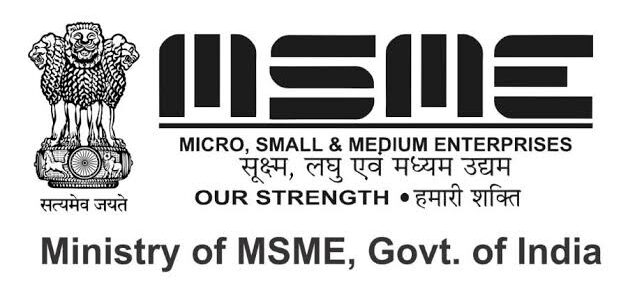A Partnership Business in India is a form of business entity where two or more individuals come together to carry out a business with a common goal of earning profit. Partnerships are governed by specific laws and regulations that dictate how accounting and bookkeeping should be managed.
1. Laws Governing Partnership Businesses
In India, partnership businesses are governed by:
- Partnership Act, 1932: This act regulates the formation, operation, and dissolution of partnerships. It provides guidelines on the relationship between partners and their rights and obligations.
- Income Tax Act, 1961: Governs the taxation of income and includes regulations for accounting and reporting requirements.
- Goods and Services Tax (GST) Act, 2017: Regulates GST compliance for businesses involved in the supply of goods and services.
- The Indian Contract Act, 1872: Governs contracts and business transactions.
- The Transfer of Property Act, 1882: Regulates the transfer of property used in business.
- The Negotiable Instruments Act, 1881: Governs transactions involving negotiable instruments like cheques.
2. Statutory Norms of Bookkeeping and Accounting
a. Accounting Standards
- Indian Accounting Standards (Ind AS): While Ind AS primarily applies to companies, partnership firms must follow general accounting principles that align with Ind AS for consistency and accuracy in financial reporting.
b. Books of Accounts
Partnership businesses must maintain the following mandatory books of accounts:
- Day Book or Journal: Records daily transactions.
- Cash Book: Records all cash transactions.
- Ledger: A collection of all accounts, categorized into debits and credits.
- Purchase Register: Records all purchase transactions.
- Sales Register: Records all sales transactions.
- Stock Register: Maintains details of inventory and stock movements.
- Bank Book: Records all bank transactions.
- Fixed Asset Register: Details the assets owned by the business.
- Partner’s Capital Account: Records the contributions and withdrawals by each partner.
- Partner’s Current Account: Records the transactions between partners and the business.
c. Mode of Accounting
- Accrual Basis: Most partnership businesses use the accrual basis of accounting, where transactions are recorded when they occur, regardless of when cash is received or paid.
- Cash Basis: Smaller partnerships may use the cash basis of accounting, recording transactions only when cash changes hands.
- ERP Systems: Utilizing ERP (Enterprise Resource Planning) systems with audit trails can enhance accuracy and efficiency. ERP systems help manage transactions, generate financial reports, and maintain audit trails for all accounting entries.
3. Income Tax Laws for Accounting
a. Income Tax Act, 1961
- Taxation: Partnership firms are taxed as separate entities. The tax rate is 30% on the taxable income, plus applicable surcharge and cess.
- Books of Accounts: Partnerships must maintain books of accounts and records that reflect a true and fair view of their financial position and performance. These records must be maintained for a period of 8 years.
- Income Declaration: All income must be declared, and expenditures must be substantiated with proper documentation.
4. GST Laws for Accounting and Bookkeeping
a. Goods and Services Tax Act, 2017
- Registration: Partnerships must register for GST if their turnover exceeds ₹40 lakhs (₹20 lakhs for North-Eastern states).
- Invoicing: GST-compliant invoices must be issued for every supply of goods and services.
- GST Returns: Partnerships must file GST returns (GSTR-1, GSTR-2, GSTR-3B) regularly. They must reconcile their sales and purchase data to ensure accurate GST compliance.
- Input Tax Credit (ITC): Proper documentation is required to claim ITC on purchases.
5. Income Tax Compliances for Accounting and Bookkeeping
- Annual Filing: Partnership firms must file annual income tax returns, detailing income, expenses, and taxes paid.
- Tax Audits: A tax audit is mandatory if the turnover exceeds ₹1 crore. The audit report must be filed along with the income tax return.
- Advance Tax: Partners must pay advance tax if their tax liability exceeds ₹10,000 in a financial year.
6. Import and Export Regulations
- Import Export Code (IEC): Required for partnerships involved in import or export activities. The IEC must be obtained from the Directorate General of Foreign Trade (DGFT).
- Customs Compliance: Proper documentation, including invoices, shipping bills, and customs declarations, must be maintained for import and export transactions.
- GST on Imports: GST on imports must be paid, and proper records must be maintained to claim input tax credits.
7. Other Statutory Laws
- Employment Laws: Compliance with labor laws, including payment of wages, employee benefits, and statutory contributions like Provident Fund (PF) and Employees’ State Insurance (ESI), is mandatory.
- Environmental Regulations: Depending on the nature of business, environmental regulations may apply.
Audit Provisions
- Statutory Audit: Partnership firms must undergo a statutory audit if their turnover exceeds ₹1 crore. The audit must be conducted by a Chartered Accountant, and the audit report must be submitted along with the income tax return.
Conclusion
Partnership businesses in India are subject to various accounting and bookkeeping regulations to ensure compliance and transparency. Maintaining proper books of accounts, following income tax and GST laws, and adhering to import-export regulations are crucial for operational efficiency. Utilizing ERP systems with audit trails can significantly enhance the accuracy and efficiency of accounting processes.
For comprehensive accounting and bookkeeping services tailored to your business model—whether manufacturing, service, or trading—contact WynSwell. We offer expert services to ensure your business meets all statutory requirements efficiently and accurately.












